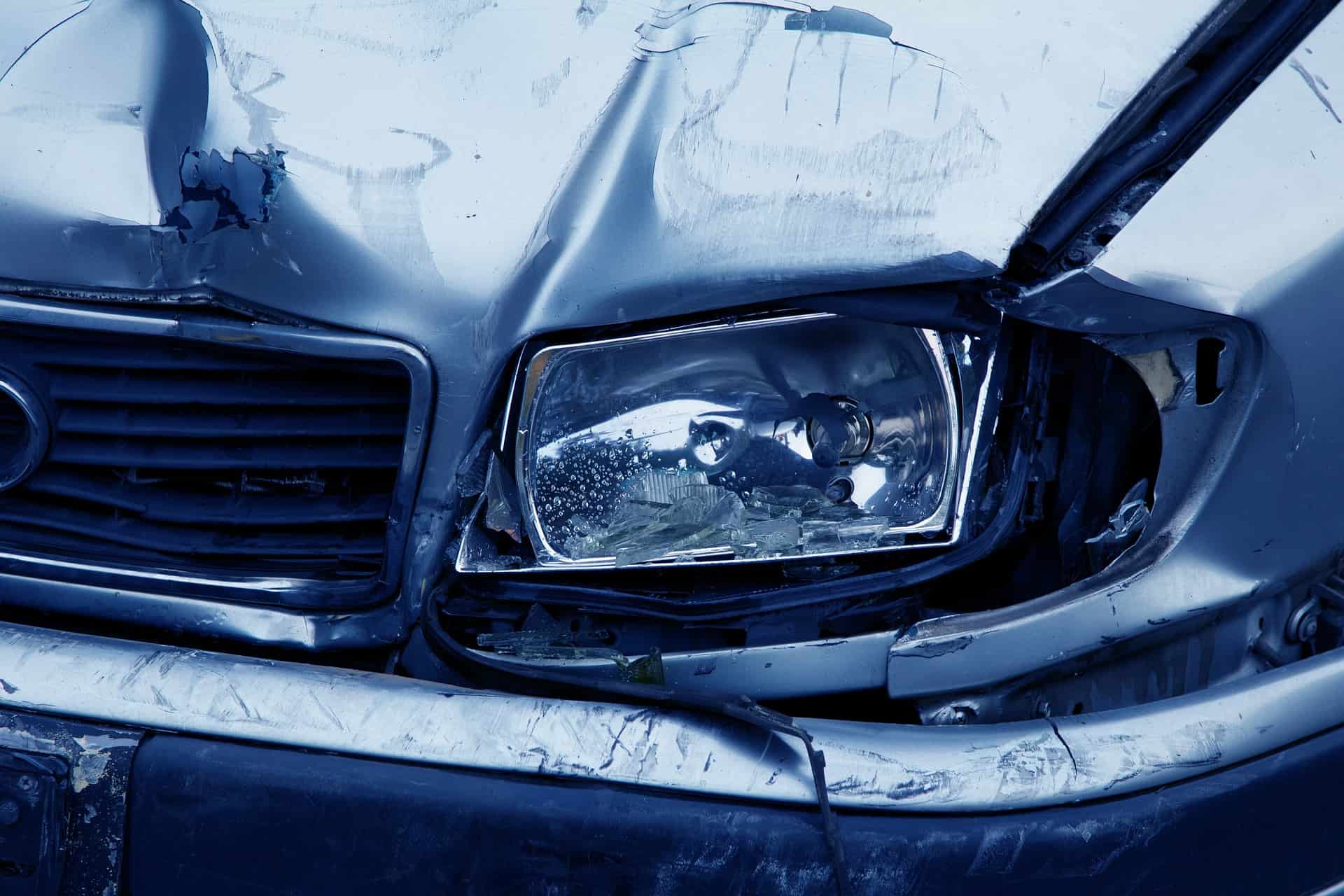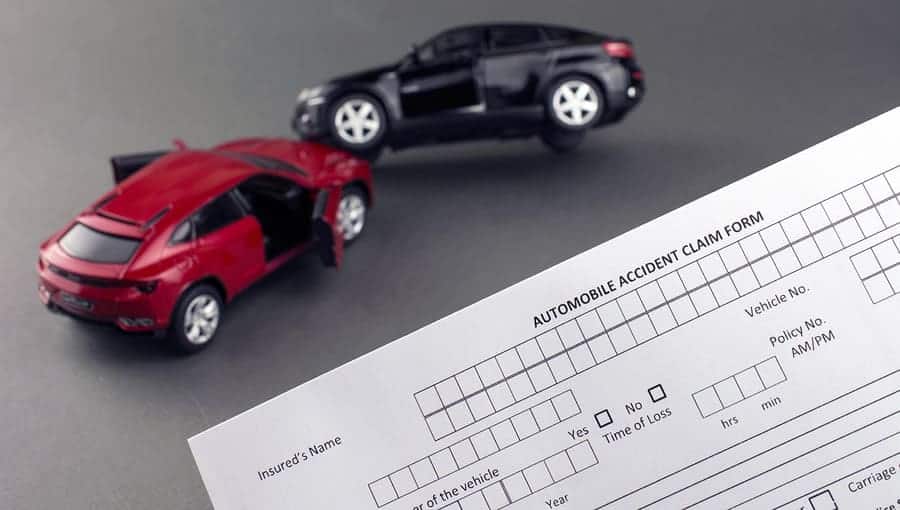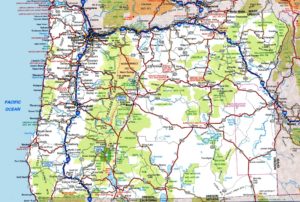Oregon Car Accident Settlement Guide

Oregon Auto Accident Claims
Oregon has big, cosmopolitan cities and many beautiful, natural rural areas, making driving this state a pleasure. But car accidents happen here, as in all states. Whether you have a serious fender bender near Crater Lake or a major rear-end accident in Portland, you will need information about car accident laws, statistics, and resources in Beaver State.

- How Much Is Your Car Accident Settlement Worth?
Find out the maximum compensation you could receive.
- How Much Is My Car Accident Settlement Worth?
Car accident settlements are usually the best way to receive compensation for your losses if you have been injured in an Oregon car accident. This means you may be entitled to money from an insurance company or other responsible party after a crash.
Filing a Claim After a Car Accident in Oregon
The first step in settling any car accident claim is to file a claim with your insurance company. This will provide essential documentation for the case and help protect your rights. Part of filing a claim involves understanding Oregon’s unique insurance laws, which can be complicated and confusing. It’s important to know your coverage, including personal injury protection (PIP) and uninsured/underinsured motorist coverage (UM/UIM). These forms of insurance offer vital financial protection should an accident occur.
Once your claim is filed, it’s time to negotiate settlements with insurers. This involves presenting evidence and details about the case that prove why you should receive fair compensation for damages suffered. Common damages covered by settlements include medical bills, lost wages due to missed work, and property damage. It’s important to understand the types of damages you are entitled to receive and keep detailed records of proof.
How to Maximize Your Car Accident Settlement in Oregon
Understanding how to maximize your Oregon car accident settlement is essential for getting the most out of your claim. This includes knowing when to accept an offer from an insurer or when to seek the counsel of a personal injury attorney. Working with an experienced lawyer can help ensure that insurance companies don’t take advantage of victims during negotiations.
When it comes to maximizing your car accident settlement in Oregon, there are some steps you should take.
First, document all damages and losses due to the collision. This includes medical bills, lost wages due to missed work, property damage estimates, and photos of the scene. Collecting this information will help build your case for reimbursement and can be used as leverage during negotiations with insurers.
Next, negotiate settlements with insurers. Present evidence detailing why you should receive fair compensation for damages suffered.
Finally, use the services of a personal injury attorney if needed. An experienced lawyer can help protect your legal rights during the negotiation and ensure the insurance companies don’t take advantage of you.
Oregon Negligence Laws
There are two major ways that US states may treat negligence in an auto accident case: comparative negligence and contributory negligence. In traditional contributory negligence rules, any fault on the part of the plaintiff prevents them from recovering financial losses. This is even true in the case of a 1% fault. However, many states, including Oregon, have moved to a system of comparative negligence.
Comparative negligence is a system where the defendant is liable only for the percentage of fault for which he or she is responsible. There are two major types of comparative negligence: modified and pure. In modified comparative fault, the plaintiff only can recover if they are 50% or 51% at fault or less. In pure comparative negligence, the injured person can collect even in a case where he is 99% at fault, and the defendant is 1% at fault. Oregon follows a modified comparative negligence model.
The modified comparative negligence model is beneficial if you are the victim of a car accident, but note there are downsides. The system puts a percentage of fault upon each person in the lawsuit. Thus, the plaintiff can be at risk of being counter-sued. For example, if the car accident victim is found to be 60% responsible for the crash when the case is shown to a jury, the defendant may turn around and file a counter-personal injury lawsuit against you.
Car Insurance Requirements in Oregon
All drivers in Oregon must carry auto insurance that meets the standards stipulated in Section 806.070. The law requires the following minimum coverages:
- $25,000 bodily injury or death to a person in one accident
- $50,000 bodily injury or death to two or more people in one accident
- $20,000 injury or destruction of property to other parties in one accident
If you do not have auto insurance in Oregon that meets these standards or those detailed in the self-insurance portion of the Code, you could face criminal fines and charges.
Car Accident Statute of Limitations in Oregon
The statute of limitations that applies to most car accidents in Oregon is the same one that deals with most personal injury cases in the state. Oregon Revised Statutes 12.110 states that legal action for an injury to the person by another party must be started within two years. Note that the clock begins on the date of the accident. The deadline will be longer if a person dies because of the crash. A wrongful death lawsuit in Oregon must begin within three years of the date that the fatal injury occurred.
Reporting a Car Accident in Oregon
Drivers who have a motor vehicle accident in Oregon must follow the accident reporting requirements stipulated in the Oregon Revised Statutes Section 811.725. It requires those in a car accident to file an accident report with the Department of Transportation within three days of the incident. You also must supply evidence of insurance when you submit this report.
Statistics and Notable Settlements
Oregon has a population as of 2016 of 4,093,000, with 37,492 million miles traveled for that year, and 12.1 auto accident deaths per 100,000 population; the national average that year was 11.6 deaths per 100,000. Below is information about accident statistics for Oregon from 2015, according data released by the state government on May 20, 2017, including the percent of change from the prior year:
- Fatal motor vehicle accidents: 410; 27.73%
- Non-fatal motor vehicle injury accidents: 28,721; 18.65%
- Property damage only accidents: 26,025; -2.59%
- Total accidents: 55,156; 7.63%
- Fatality rate: 1.24; 20.18%
- Fatal and serious injury rate: 6.17; 15.41%
- Serious injury rate: 4.94%; 14.28%
- Number of accidents involving bicycles: 960; -4.10%
- Pedestrians: 917; 3%
- Motorcycles: 1090; 11%
- School buses: 160; 14.29%
- Tractor trailers: 2174; 1.4%
The state government also noted there were 445 persons killed in motor vehicle accidents in Oregon in 2015, which was a 25% increase from the year before. There also were 41,754 people killed, a 19% increase from the year before.

- Speak to a Car Accident Attorney
- Fast, Free & Confidential!
According to state government statistics, the top 10 reasons for motor vehicle accidents in 2015 were:
- Failure to avoid parked or stopped vehicle ahead
- Failure to yield right of way
- Driving too fast for conditions
- Not maintaining lane
- Following too closely
- Improper lane change
- Not decreasing speed for a slower vehicle
- Driver inattention
- Disregarding red light or traffic signal
- Left turn in front of traffic
The highest number of Oregon auto accidents occur in Multnomah County. Of the 13,700 accidents that happened in that county in 2012, 44 died and 9580 were hurt. This means 4000 accidents involved only property damage. Washington County was the next in line in number of accidents that year with 6700 crashes, 19 deaths and 5172 injuries. Clackamas County was third with 4461 crashes, 20 deaths and 3456 injuries. The lowest number of car accidents was in Wheeler County with only 20 crashes, one death, and eight injuries.
Portland is the largest city in Oregon, and naturally has the highest number of accidents per capita. In 2012, there were 11,685 accidents in the city, with 7956 injuries and 32 deaths. The accident rate has risen in Portland from 2008 to 2012; there were 9206 crashes in 2008, and had risen by 2479 crashes by 2012.
As car accidents have risen in recent times in more populated parts of Oregon, there have been some high profile personal injury lawsuits from car accidents in the state. For example, a woman in Junction City, Oregon has sued the supermarket chain Safeway in connection to a fatal crash in 2016 that killed the woman’s seven-year-old son.
She has filed a federal lawsuit against Safeway alleging that the company knew or should have known that the configuration of the parking lot off Highway 99 in Junction City was dangerous. She is suing the company for $1.56 million in financial compensation. The was not charge in the car accident and was not named in the federal lawsuit. The child was allegedly seated on a curb of a landscaped median in the parking lot when he was hit by the truck.
Oregon Car Accident Settlement Calculator:
Have you been involved in a motor vehicle accident or otherwise injured in Oregon? Find out how much financial compensation you may be legally entitled to in just minutes with our free online car accident settlement calculator.
-
Oregon Accident Settlement Taxes
The IRS has decided if a person in a personal injury lawsuit has a physical injury, payment for medical costs, lost wages, pain, suffering and emotional trauma is generally not taxable. This is the case at the Oregon state level as well.
However, there are some exceptions to note:
If you are awarded prejudgment interest on a settlement or verdict, the portion for interest is taxable. However, prejudgment interest is usually not awarded in a personal injury settlement in Oregon. Any interest that is collected post-judgment is taxable. Oregon has 9% interest on judgments, and interest is not usually included in the settlement.
If you receive a settlement for punitive damages to punish the defendant, that part of the payment is subject to federal and state taxes.
Deducting part of your medical expenses on Schedule A of your tax return in a prior year would be taxable at the federal and state levels.
Also, interest income that is earned on money gotten in a settlement is taxable in Oregon and at the federal level. For example, if you get a settlement of $200,000, let’s say you earn 5% on the money in an investment account. The $10,000 you made on the settlement is taxable income.
Oregon Negligence Laws
There are two major ways that US states may treat negligence in an auto accident case: comparative negligence and contributory negligence. In traditional contributory negligence rules, any fault on the part of the plaintiff prevents them from recovering financial losses. This is even true in a case of 1% fault. However, many states including Oregon have moved to a comparative negligence system.
Comparative negligence is a system where the defendant is liable only for the percentage of fault for which he or she is responsible. There are two major types of comparative negligence: modified and pure. In modified comparative fault, the plaintiff only can recover if they are 50% or 51% at fault or less. In pure comparative negligence, the injured person can collect even in a case where he is 99% at fault and the defendant is 1% at fault. Oregon follows a modified comparative negligence model.
The modified comparative negligence model is generally beneficial if you are the victim of a car accident, but note there are downsides. The system puts a percentage of fault upon each person in the lawsuit. Thus, the plaintiff can be at risk of being counter sued. For example, if the car accident victim is found to be 60% responsible for the crash when the case is shown to a jury, the defendant may be able to turn around and file a counter-personal injury lawsuit against you.
Oregon Car Accident Resources
After you have been in a car accident, it is easy to be stressed out and unsure what to do. Below are some resources to help you if you are in an accident in this state:
- You should file the Oregon Traffic Accident and Insurance Report with the DMV within 72 hours of the accident. This is the case if any damage to one vehicle is more than $2500; any vehicle had to be towed; injury or death resulted; and damages to any property was more than $2500.
- If you hit a vehicle that is unoccupied, you are required by state law to place your name and address on a note on the vehicle.
By following these steps, victims can increase their chances of receiving a favorable car accident settlement in Oregon by presenting their case effectively and properly negotiating with insurers. By taking proactive measures such as documenting proof and understanding insurance law regulations, individuals facing a car accident settlement have a greater chance of receiving financial relief for any damage or loss incurred from an automobile collision in the Beaver State.
By educating yourself on these topics and working with an experienced personal injury lawyer, you will be able to navigate Oregon’s car accident claim process with confidence in order to receive fair compensation for your damages. With the right information and resources, settling an Oregon car accident claim doesn’t have to be stressful or overwhelming – it can be one of the first steps toward getting the justice and closure you deserve.

- What’s my car accident settlement worth?
- Find out in less than 60 Seconds!
Related Articles
Whiplash Payout Scale for Grades 0-4
Whiplash is common in car accidents, especially rear-end collisions. Your head and neck are forcefully jerked back and forward by the rapid acceleration-deceleration combination, causing injury to the head, neck, and shoulders. Each auto accident is...
How Long Does a Car Accident Settlement Take?
Involvement in a traffic collision creates a difficult situation, which can be made worse by injuries and property damage. You may be legally entitled to monetary compensation. How long does a car accident settlement take? The answer is different for everyone, but...
How To Adjust to the Traffic and Transportation Culture of a New Area
Even within the same country, transportation cultures can be drastically different. For instance, in New York, the public transportation system is a lifeline for many residents, with the subway being the primary mode of transportation. The city's layout encourages...
The Safety, Pros, and Cons of Different Methods of Transit
There are pros and cons for the different forms of transportation people use every day. The choice of how to get to work or school, run errands, or take longer trips often depends on what modes are available. In densely populated cities, bikes, walking, and public...
How Smart Infrastructure Will Improve and Complicate Public Safety
The American Society of Civil Engineers explains that smart infrastructure uses sensors, cameras, and other connected devices to collect information that helps provide better public services. It works in security, traffic, public transportation, utilities, air...
How To Rethink Your Approach to Hobbies in Light of an Injury
Hobbies are incredibly important for your health and your quality of life. They reduce your stress levels and fight off anxiety and depression by allowing your brain to focus on something you enjoy. You can use hobbies to connect with others, get outside, and get...
Can Exercising Negatively Affect a Car Accident Settlement?
Exercise is a daily part of life for many people. Some individuals work out to stay fit and improve their mobility while others enjoy the mental health benefits of running, swimming, and participating in other forms of exercise. However, after a car accident, it can...
How To Identify Dangerous Driver Behavior in a Taxi or Rideshare
You’ve most likely taken a taxi or rideshare from or to the airport, an event, or just to a friend's house. As integral tools in modern life, they offer convenience, efficiency, and, in many cases, a cost-effective alternative to owning a car. However, like any other...
How New Technologies May Pose New and Unique Distracted Driving Challenges
Distracted driving is one of the most common causes of accidents. The National Highway Transportation Safety Administration (NHTSA) counted 3,522 fatalities in 2021 due to distracted driving. Distracted driving is usually associated with cell phones, but the Centers...

